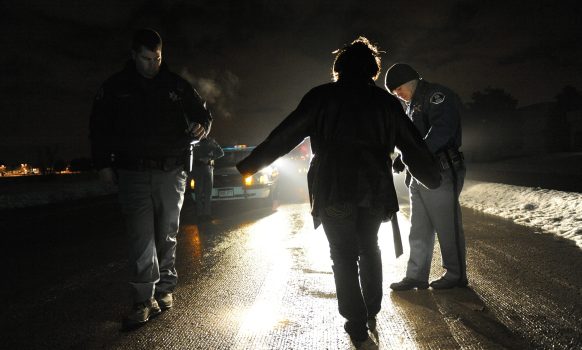As marijuana becomes legalized around the United States, more studies are being devoted to the tracking of driving under the influence of drugs cases. Several studies have been recently featured in correlation to Aspen DUI’s, Glenwood DUI’s, and Vail DUI’s. It was also recently found that Colorado ski resort towns lead Colorado in DUI arrest rate.
New Ground Breaking Study
Notably, a monumental report released in May, 2018 from the Governor’s Highway Safety Association(GHSA) tracked the number of drug and alcohol related driver fatalities across the United States. The report highlighted problems police have investigating DUI’s and gave suggestions to lawmakers on how to handle the changing driving trends of the US population.
The GHSA Report documented that over the last 10 years there has been an increase in drug related driving fatalities and a decrease in alcohol related driving fatalities. In 2016, 43.6% of killed drivers with known drug test results were drug-positive compared to 27.8% in 2006. However, driver fatalities with a positive alcohol test is down to 37.9% in 2016 from 41.0% in 2006. This report indicates a strong increase in driving under the influence of drugs.
Issues with Policing Driving Under the Influence of Drugs
The GHSA Report also looked at the current problems in DUI investigations. Mainly, the problem with Driving under the influence of drug investigations in Colorado is that the science and police tactics have not caught up to the times.
According to the above GHSA report, “many officers have not been trained to recognize the behavioral signs of drugs other than alcohol.” They also don’t use testing designed for drug use detection. Further, impairment detection is difficult because there are people who can drive with a high level of drugs in their system who show no signs of driving impairment.
With the rise in driving under the influence of drug fatalities, changes to the policing would seemingly need to be inevitable.
Police still use investigation tactics for driving under the influence of drugs that were designed for alcohol use. When a police officer makes a stop for a suspected DUI, they typically make an assessment based on their own observation, off of voluntary roadsides sobriety tests, and off of a voluntary portable breadth test, which can only detect alcohol. Only if an officer has probable cause to detect an alcohol, marijuana, or drug DUI can they then ask for a recognized blood test. Police experience difficulty with the detection of drugs because the voluntary roadside tests are designed to test for alcohol and the portable breathalyzer only detects alcohol. This can leave a huge gap in a driving under the influence of drugs investigation.
New Drug Testing Methods
The GHSA report details there needs to be a better roadside screen to see if people are under the influence of drugs. Saliva drug tests already exist and have been implemented outside of Colorado. These tests can identify a number of drugs within 5 minutes. However, Colorado Police have yet to implement any of the saliva tests.
Detecting impairment can even be difficult with a blood test. The variance of different people’s tolerances can vary enormously. The GHSA report states that in detecting drugs, “chronic marijuana users may not be impaired even with high levels of marijuana in their bodies.” A person with a high level of a drug in their system may not be affected if they have a high tolerance to that specific type of drug. As the GHSA states, it can be difficult to detect even high levels of drugs in people’s systems without a blood test or some other obvious signs of impairment.
As the rise of marijuana and driving under the influence of drugs continues, the police will eventually have to catch up. Until then, the grey area is left open for DUI lawyers to evaluate and make sure that no one is being taken advantage.
—
Kalamaya | Goscha is a Colorado law firm founded by Ryan Kalamaya and Amy Goscha. The boutique mountain law practice specializes in personal injury, criminal defense, DUI defense, divorce and family law. Kalamaya | Goscha has law offices in Aspen, Glenwood Springs and Edwards. To speak to an attorney call (970) 315-2365.

